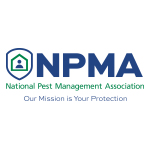As Americans Move South, NPMA Advises On Warm Climate Pests

National Pest Management Association shares advice on protecting health and homes against pests that thrive in states with year-round warm and wet weather
FAIRFAX, Va.–(BUSINESS WIRE)–#PestPrevention–While the draw of sunny skies, beach days, and year-round summer weather is enticing, the National Pest Management Association (NPMA) is advising those moving south on warm weather pest prevention. From biting pests like mosquitoes to pests that can damage the structural integrity of a home such as termites, NPMA is committed to offering pest-prevention tips to stay healthy and ensure a smooth move south.
The U.S. census revealed that as many as 1.4 million Americans moved to the south between mid-2021 and 2022. “Many pests such as cockroaches and termites are known to thrive in warm conditions and southern living can spell infestations for northerners who are not used to needing year-round pest control,” says Jim Fredericks, Senior Vice President of Public Affairs for the NPMA. “While folks living in cool or dry climates may encounter cockroaches from time to time, they need to be prepared for the sheer abundance of cockroaches living in and around buildings in the south due to the warm, wet climate. The same goes for termites, whose favorite source of food is =wood. Termites are much more abundant in southern states, and there’s a greater diversity of species searching for food 24 hours a day. Termite inspections cannot go on the back burner and should be done prior moving into a new home, and on an annual basis after that, even if a home has been treated.”
In addition to the threat of termites and cockroaches in the home, mosquitoes are also a year-round nuisance and health risk in the south. Northerners are typically used to only breaking out protective measures against mosquitoes from June-August and will need to take extra precautions when migrating south. “Mosquito populations, which thrive in warm, wet conditions, can rapidly multiply and only need half an inch of standing water to lay their eggs. This makes storm prone southern states the perfect spot for this pest to breed all year long in areas where water collects, such as puddles, buckets, bird baths and other containers.”
With millions of Americans opting to live in states with warm weather year-round, NPMA recommends the following pest-prevention measures:
- Store firewood away from buildings and make sure wooden parts of the structure are not in contact with the soil.
- Remove or drain sources of standing water in your yard that could be a breeding ground for mosquitoes, including birdbaths, wading pools or garden ponds.
- Eliminate all moisture sources, including leaking pipes and clogged drains. Pay extra attention to kitchens and bathrooms, as these areas are particularly vulnerable to pest infestations.
- Keep storage areas like attics, basements and crawl spaces well organized, ventilated and dry.
If pests become an issue in your home or you suspect an infestation, contact a licensed pest professional to address the problem, and visit PestWorld.org for additional information on pest prevention.
About the National Pest Management Association
The NPMA, a non-profit organization with more than 5,500 members, was established in 1933 to support the pest management industry’s commitment to the protection of public health, food and property from the diseases and dangers of pests. For more information, visit PestWorld.org or follow @PestWorld on Facebook, Twitter, Pinterest, TikTok and YouTube.
Contacts
Gillian Scott
Vault Communications
215.859.3500
gscott@vaultcommunications.com
